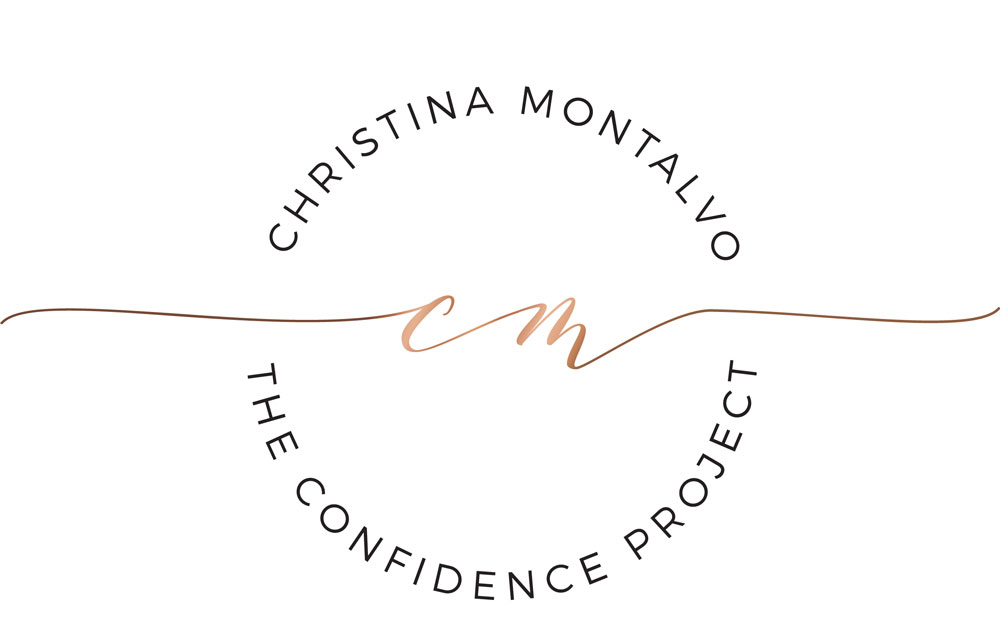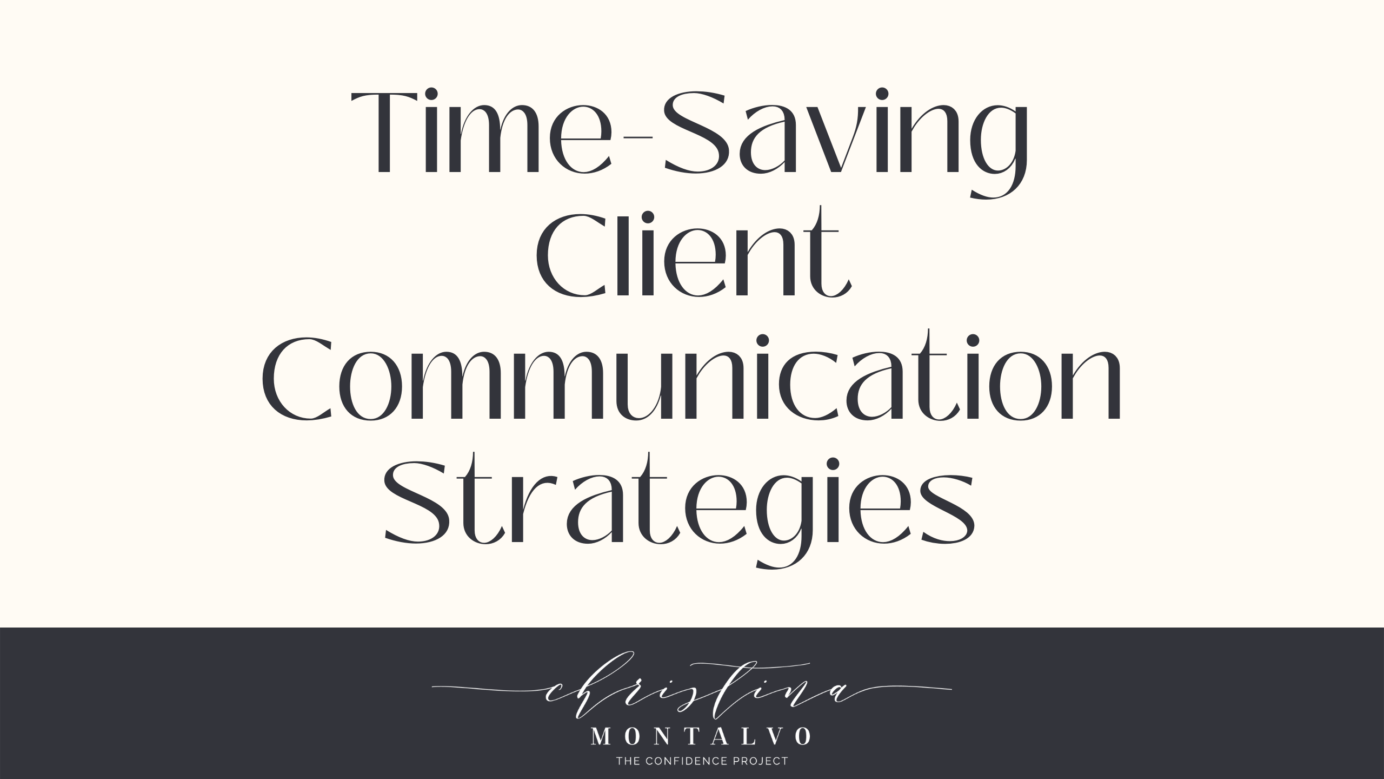Communication in your business breaks down because of 1 of 2 reasons.
It sounds benign, AND you might think this isn’t an issue for you– but I can assure you, if you feel that your business is swallowing you whole, there is room for improvement with your communication with your clients.
The two reasons are:
1. You don’t know what you don’t know.
→ you maybe didn’t realize that you’d have to tell your clients not to do or how to do x, y, or z until it happened. This isn’t your fault, because you truly do not know what you do not know. We do want to be future-thinking and anticipatory of what might be misconstrued, ignored, or even abused if not made perfectly clear ahead of time.
2. You’re scared.
→ A client does something, says something, requests something, doesn’t do something…. and it bothers you. It annoys you. You end of venting about it later. And yet, you are terrified to have this conversation with your client(s). What if they quit? What if they give you a hard time? What’s so wrong about grinning and bearing it FOREVER?
___________________________________
A non-exhaustive list of things to communicate to all of your clients off the bat:
→ How they can contact you and through what mediums.
→ How long they can expect to wait to hear back from you.
→ How long you’ll be available after their session has started if they are running behind/late.
→ How to contact you if they are going to be late.
→ What happens if their payment is late and what course of action will take place.
→ How to cancel or reschedule sessions and the parameters of which they can do so, if at all.
→ Your vacation policy.
→ The business holiday schedule
→ the list goes on.
__________________________________________
Common problems
→ We feel that our clients are doing us favors when they sign up to work with us and begin to pay us. This makes us feel like we are not in a position to uphold and enforce boundaries.
Your clients are not doing you a favor. They are willingly investing in a service that is attached to a business that has rules.
→ We have gone “forever” without clear communication and feel that we don’t have the right to “change the rules of the game in the middle of the game.”
Business policies change ALL of the time.
You’ve likely gotten dozens of things in the mail from various companies (credit cards, digital subscriptions, etc) that say: “hey you! We’ve made a change to how we do xyz, here’s what you need to know.”
100% you glanced it over, realized you don’t care all that much, and tossed it into the recycle bin. Funny, right? On the receiving end of a new piece of communication, you hardly care. On the SENDING side of communication- you want to crawl into a hole and die. I can assure you, clear communication is a NORMAL and EXPECTED part of running a business.
______________________________
It will be harder at first- because you have to acclimate to your new way of existing and showing up AND your clients may need to acclimate a bit as well.
And then, it gets easier. You will get used to how you show up as a clear and honest* communicator, your current clients will adjust, and your new clients won’t have known any different to begin with.
*Honest is kind. Being “fake nice” for the sake of trying to save face is unkind. Smiling and nodding and saying “omg it’s totally fine!” and then telling your partner that Bob is an asshole for never showing up on time is dishonest. While Bob might indeed be an asshole, he’s also taking what you’re saying at face value- you told him it was fine!
So while it might make you cringe thinking about telling Bob:
“Hey Bob, as of September 1, I will no longer be able to wait 20 minutes to begin your session. If you are running more than 10 minutes late, your session will be cancelled out of respect for my time.” If Bob says: “what does it matter, you’re sitting there any way.” You can tell Bob “I reserve my time for people who take my time as seriously as they take their own. I understand that unexpected things can pop up, but this has been a recurring issue for quite some time. Sessions are 45-minutes long, and a weekly 25-minute session is not going to allow me to do my job to the best of my ability. If you’d like, I can look at my schedule and we can look at another time that may work better for you so that you can begin arriving on time for your session. However, the new policy remains- if you are going to arrive more than 10 minutes late, your session will be marked as a no-show.”
…it’s better than sitting around thinking it’s OK for clients to waste your time as if their lives and their time is more valuable than yours.
You do know that what’s chronic lateness means, right?
It means that someone thinks their time is more important than yours.
And like, I’m sorry- I’ll have none of that in my business.
If I’ve made a concerted effort to be on time for something that a client has invested in (so as to say “I want this, this is important to me”) then why am I treating this block of time MORE seriously than they are?
This is just ONE way that we invest more into our clients than they invest in themselves, and it is one way we can begin to see codependency show up in our business.
_____________________________________________
More communication examples:
Here is an excerpt from one of The Barbell Collective’s on-boarding materials:
“I will be inside TrueCoach 2-3x per week. This means if you post a form check on a Sunday, you may not hear back from me until Friday. If your form check goes without a response for 7 + days without a prior explanation, please give me a nudge!”
_______________________________________________
Why this works:
→ I have wiggle room. I do not enjoy having to be tied to a rigid schedule- been there, done that. This bird has left her cage. Communicating this gives me the option to be inside TrueCoach at different days/times throughout the week if I so choose. It also makes it perfectly clear that they can expect to wait to hear back from me from time to time. The craziest part is? They hardly have to wait that long. This also leaves room for me to underpromise and over-deliver under best-case scenario AND allows room for worst-case scenario as well.
→ In the event I go on vacation, I let them know ahead of time. That usually sounds like this:
“Hey team, I’ll be out of town from x-x. I’ll pop into the Facebook group 1-2x while I’m gone, and I’ll resume form checks on x-date once I am back!”
“Popping in” would happen when I’m waiting at the airport or waiting for my rental car, or while in an Uber. If I’m going to be gone for less than a week, I probably won’t “pop in” while I’m gone– and my communication would say:
“I’ll be gone from x-x, and all questions and check-ins will be answered on x-date once I’m settled back home.”
___________________________________
When my gym was open, we had two rules while I was away:
“No blood. No fire.”
Members had access to open gym while I was gone (update your contracts and insurance policy if you’re going to do this!) and the communication that went out went something like this:
“I will be gone from x-x with limited availability by email and phone. Your workouts for the week are posted inside Zen Planner. Have a workout related question and not sure what to do? Phone a friend option inside the IPSC facebook group. In the event of a true emergency (blood or fire), please contact x, and then myself and if I am unavailable, please leave me a voicemail. The landlord’s information is x, in the event of a building issue. I look forward to seeing you all once I return on x. Have a great week, everyone!”
Simple as that.
Was I always afraid that someone would say:
“What the fuck Christina, why do you get to go on vacation?!”
YES.
And then I realized my clients were either:
-working full time jobs that paid them at least 2 weeks vacation
-retired and on a vacation the rest of their lives
-stay at home moms, who went on dozens of vacations each year
-business owners, who I felt responsible for leading by example
AND.
Did I REALLY want to work with someone who got upset with me for going on a vacation?
No. Nopeity nope nope.
Because it’s not like it happened all the time.
AND.
I spent almost my entire 20’s without ever taking a single day off or one single vacation. So no, no thank you, I did not sign up for that life and no forever and ever amen.
Of all my years, I’ve only had a handful of truly asshole clients.
The % is so low compared to all of the people I’ve worked with across my 10+ year career so far.
The key is to communicate as clearly and openly as possible & giving ample notice, save for emergencies- which do happen.
_________________
Best practice is to give your clients ample notice for any and all changes, and to do so without over justifying or apologizing.
You might sound like this:
“I am SO sorry! We will be closed for Christmas day. SO sorry! I hope you understand! Here are 234987 ways I’ll make up for it!”
or
“I’m raising my prices, and I didn’t want to! But this is why I’m doing it. Here are 3476 explanations and justifications. So sorry! Please let me know if this is OK. Is… is this ok? So sorry.”
Right?!
Unless you are hurting someone’s feelings or actually have a last-minute change that would TRULY be an inconvenience for someone, there is no need to apologize or justify.
Giving your clients ample notice for any changes is key.
I would plan to send out all Holiday schedule changes at least 4-weeks in advance. I would say something like:
“We will be closed from x-x to observe x. If you’re planning to exercise during that time, all workouts will be uploaded into x. Coaching and sessions will resume on x-date. If you have any questions or concerns, you can reply to this email. I’ll remind each of you a few more times as we get closer.”
__________________________
“But Christina! What about my payments? What about their sessions!?”
Yep… stop charging hourly. You’re going to need a new business model.
You can read more about how to begin to do that here, here, here, & here.
Your agreements should reflect your business policies.
Your business policies should reflect your personal boundaries.
And you need to be forward-thinking enough to know at any point of the year what Holidays you will be taking off and what the business policies are that uphold that. All of this should include how that affects payments and sessions— REMINDER: it shouldn’t affect your payments 😉
_________________________________
→ What is YOUR vacation policy? Have you communicated that?
→ What’s your Holiday work schedule? You should have one and block out all important dates ahead of time. Yep- even right now for NEXT year. Which means you should know how THIS year is going to close out for you, your clients, and the business.


